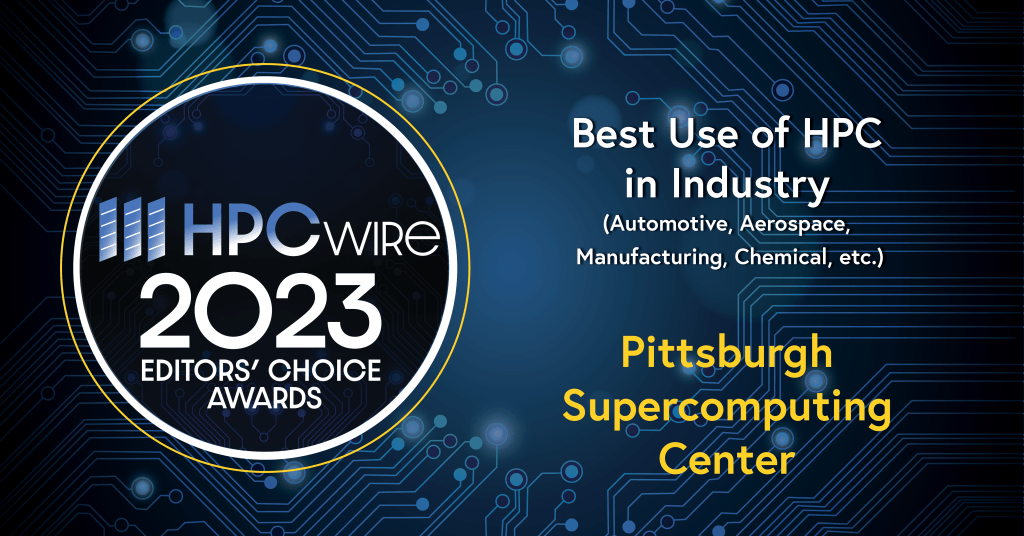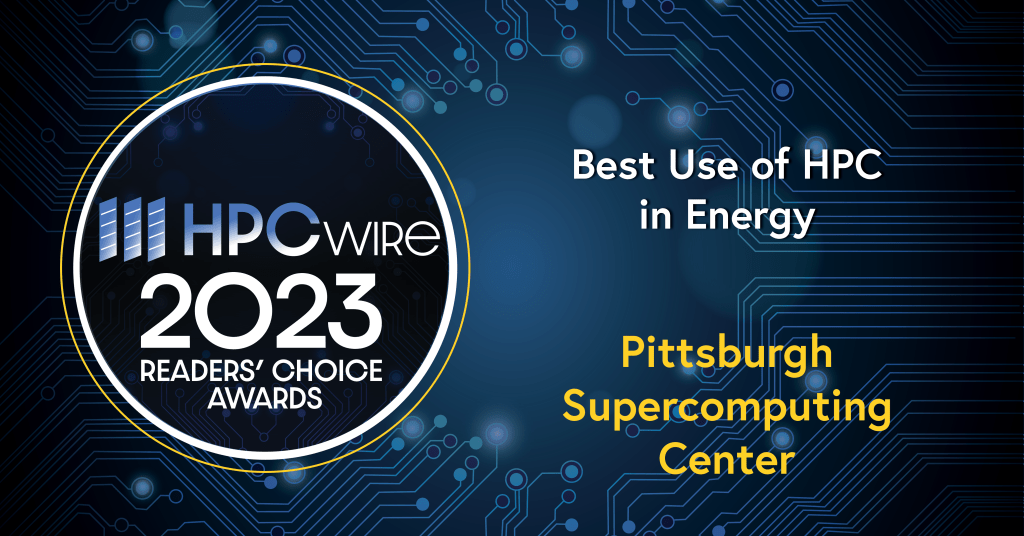

14th Year Center Has Received HPCwire Awards, Presented Annually to Leaders in the Global High Performance Computing Community
A potential way to turn coal into clean-energy graphite and carbon nanotubes and an application of a bleeding-edge computing technology to speed up a classical but difficult turbulence problem have earned two HPCwire Awards for the Pittsburgh Supercomputing Center (PSC) and its collaborating institutions. It is the 14th year in which PSC has been so recognized.
The awards were presented at the 2023 International Conference for High Performance Computing, Networking, Storage, and Analysis (SC23), in Denver, Colo. HPCwire, the leading trade publication for the high performance computing (HPC) industry, revealed the awards and recipients at its SC23 booth, as well as on its website: www.hpcwire.com/2023-hpcwire-awards-readers-editors-choice.
“PSC has been supporting innovative and cutting-edge research for years,” said Barr von Oehsen, PhD, Director of PSC. “We do this through our research computing and data systems, but also through the knowledge and expertise the PSC team brings to every research project, ensuring outstanding research is being achieved.”
PSC was recognized with:
- Readers’ Choice: Best Use of HPC in Energy: Ohio University, PSC, the University of Cambridge, and the University of Oxford used PSC’s flagship Bridges-2 supercomputer to run simulations revealing how a coal-like material can be converted to a graphitic form, which is vital for clean energy and other advanced applications, including lithium ion batteries.
- Editors’ Choice: Best HPC in Industry (Automotive, Aerospace, Manufacturing, Chemical, etc.): Working together, the National Energy Technology Laboratory, PSC, and Cerebras Systems accelerated their research on the Rayleigh–Bénard convection problem. They achieved the world’s first fluid flow solution using Cerebras’s Wafer-Scale Engine technology in PSC’s experimental Neocortex supercomputer, promising substantial speed and energy efficiency. The simulation has applications in predicting severe weather events like downbursts, microbursts, and derechos, as well as magma movement in the earth’s core and plasma movement in the sun.
The coveted annual HPCwire Readers’ and Editors’ Choice Awards are determined through a nomination and voting process with the global HPCwire community, as well as selections from the HPCwire editors. The awards are an annual feature of the publication and constitute prestigious recognition from the HPC community. They are revealed each year to kick off the annual supercomputing conference, which showcases high performance computing, networking, storage, and data analysis.
“This year we are celebrating the 20th anniversary of these renowned awards, and the 2023 Readers’ and Editors’ Choice Awards are exceptional, indeed,” said Tom Tabor, CEO of Tabor Communications, publishers of HPCwire. “Throughout the world there are pockets of brilliant scientists working on grand challenge problems that can only be explored and solved because of HPC. Rarely do these accomplishments come to light, much less are they recognized for their achievements and contribution to society. Between our worldwide readership of HPC experts and the most renowned panel of editors in the industry, the Readers’ and Editors’ Choice Awards represent resounding recognition of the many deep and varied HPC accomplishments throughout the world. Our sincerest gratitude and hearty congratulations go out to all of the winners.”
More information on these awards can be found at the HPCwire website (www.HPCwire.com) or on Twitter through the following hashtag: #HPCwireAwards.
